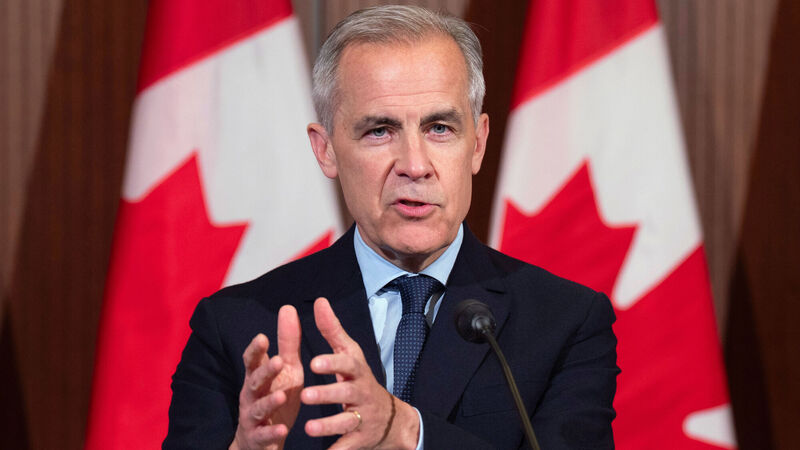Ireland's goods exports to Canada fall by more than 50%

Canadian prime minister Mark Carney has pushed to enhance the strategic trade partnership with the EU. Picture: Adrian Wyld/The Canadian Press via AP
At the EU-Canada summit in Brussels last week, Canadian prime minister Mark Carney, anxious to offset the loss in trade with the US following the bruising exchanges with president Donald Trump in recent months, seized the opportunity to push to enhance the current strategic trade partnership with the EU.
Under the current Comprehensive Economic and Trade Agreement (CETA), Ireland has gained enormously since its initial signing in 2017. Ireland’s exports to Canada rose from €1.7bn in 2017 to €5.2bn in 2024.











